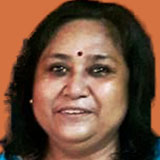Remembering singer Arati Mukherjee
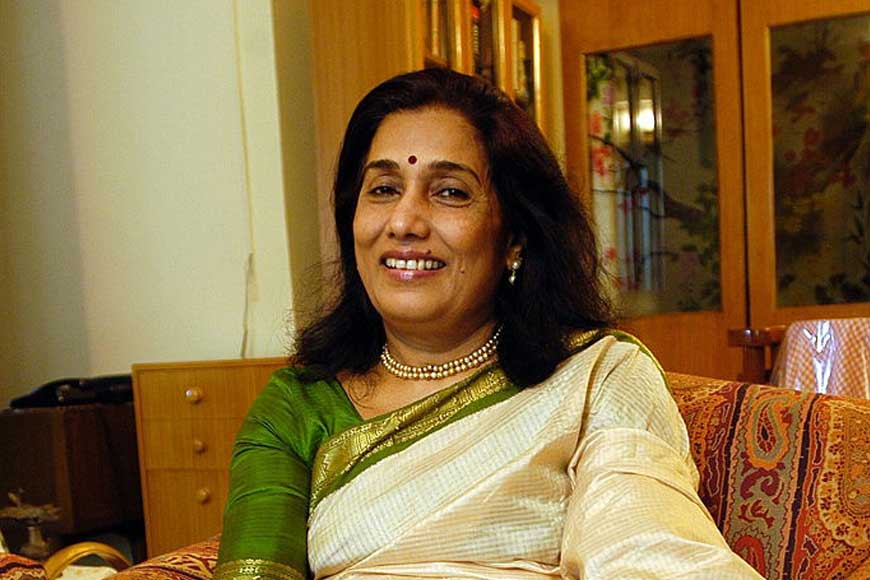
Legendary singer Arati Mukherjee hails from the golden era of Bengali music, a genre that will always remain ensconced in the heart of Bengali audience. The popularity of a vast treasure-trove of evergreen numbers sung by legends like Hemanta Mukhopadhyay, Sandhya Mukhopadhyay, Manna De, Shyamal Mitra, Manabendra Mukhopadhyay, Arati Mukhopadhyay, Pratima Bandopadhyay, Satinath Mukhopadhyay, Utpala Sen, Nirmala Misra and a host of other artistes has mesmerized Bengali audience that can never extricate itself from the magical charm of that golden era of music which spanned for close to five decades from the late 1950s. When emotions well up, music continues to embalm the disturbed soul. Arati Mukhopadhyay’s mellifluous rendition always had the power to awaken that soul. Then where did she vanish?
Mukherjee was born on July 18, 1943 in Dhaka. Her family had a rich cultural and musical heritage. After migrating to Kolkata, she grew up in a large joint family. She lost her father at an early age. Her mother introduced her to music early. She learned classical music from renowned gurus including Sushil Banerjee, Ustaad Mohammed Sagiruddin Khan, Pandit Chinmoy Lahiri, Pandit Laxman Prasad Jaipurwale and Pandit Ramesh Nadkarni. Sushil Banerjee coaxed her to participate in the All India Music Talent in 1955 when she was merely 14 or 15 years old. Eminent singer Dhanonjoy Bhattacharya was the chief judge in that competition and he was so impressed by Arati Mukherjee’s rendition that he asked her guru, Sushil Banerjee, whether she was interested to sing a duet with him in the Bengali film, ‘Mamlar Phol,’ based on a novel by Sarat Chandra Chattopadhyay.
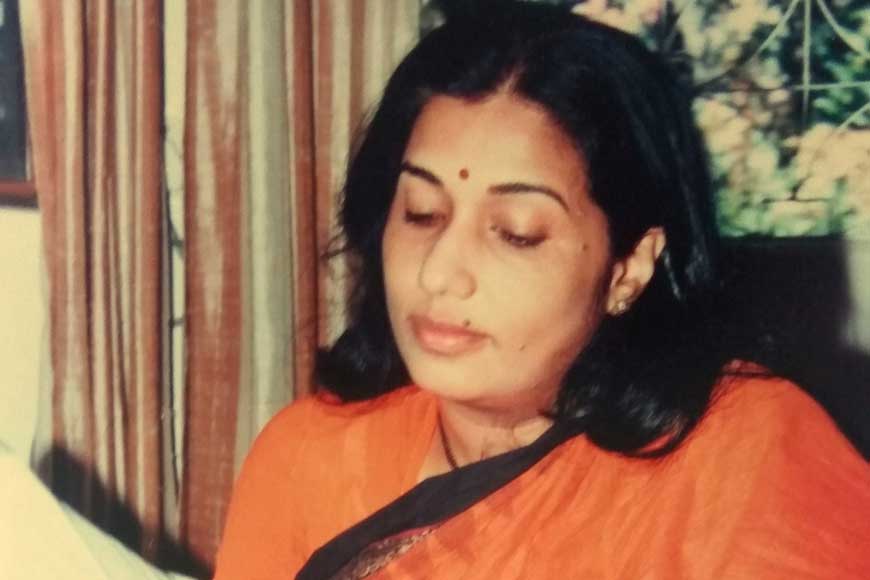
Mukherjee also participated in the prestigious Metro Murphy Music Contest where participants from all over India took part. The contest was judged by stalwarts from the Hindi film music world including Anil Biswas, Naushad, Vasant Desai and C. Ramchandra. She won the trophy and got her first break as playback artiste for the 1958 film, ‘Sahara.’ Mukherjee decided to try her luck in Bengali films and in 1962, she sang for the first time in a Bengali film called ‘Kanya’. With her fresh, melodious voice and versatility, she created magic. It was like the proverbial Latin phrase, ‘veni, vedi, vici’ ( I came, I saw, I conquered). She became the voice of the leading actresses of the 1960s and 1970s including ‘Maha-Nayika’ Suchitra Sen, Supriya Chowdhury, Madhabi Mukherjee, Aparna Sen, Tanuja, Sharmila Tagore, Debasree Roy and so many others. In the 1970s, she, along with Asha Bhosle, took the leading spot in Bengali music.
Mukherjee could sing any song – from Thumri, to Bhajan, Tappa, Tarana and Ghazal. She performed extensively in India and throughout the world. But her long career was often sabotaged by many of her senior and contemporaries who felt threatened by her vast repertoire and swelling popularity. Mukherjee herself was reluctant to talk about the incidents, petty politics, but it did affect her tremendously. She once said: “I was struggling in Mumbai then. You know, I still don't know exactly who mixed what in which food. Suddenly one day I started feeling very uncomfortable. My feet swelled up like two huge pillars and I couldn’t move in sheer pain. I went to the doctor. The doctor immediately washed my stomach and got rid of that weird substance and he said that someone had mixed poison in my food. The pain in my legs that started then and continue to trouble me to this day. I can't even sit and practice continuously.”
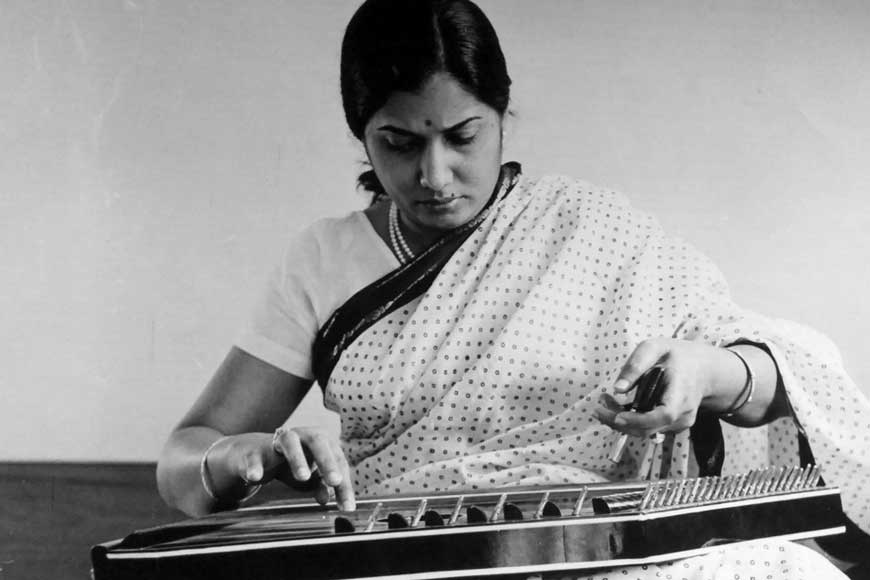
Mukherjee was introduced to lyricist Subir Hazra early in her career and the duo created wonderful perennial chartbusters like ‘Tokhnon tomar ekush bochhor bodh hoy…’, ‘Aaynate mukh dekhbo na…’, ‘Bohu poth bhenge…’, Esho na galpo kori…’ She fell in love and the duo married. Hazra was a multi-faceted talent who also penned screenplays and was assisting Satyajit Ray during that time. Everything seemed well in the beginning but very soon Mukherjee realized Hazra was very possessive and was unwilling to give her any space. The relation was stifling her. At this point one of her mentors and music directors, Sudhin Dasgupta advised her to relocate to Bombay. Her professional career was at its peak then in Bengal. But she had to take the risk. Mukherjee finally decided to take the plunge after her divorce with Hazra came through.
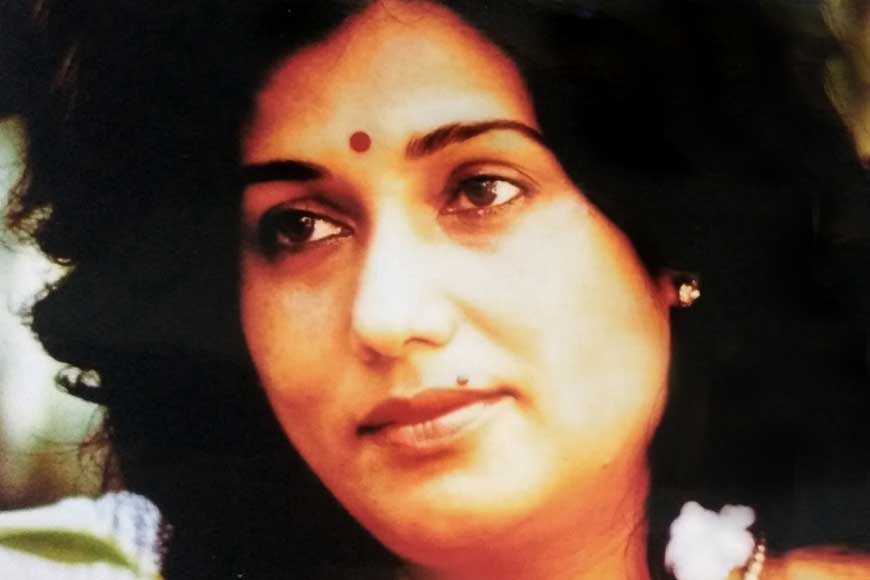
Her journey in the Hindi film world soared with the film, Geet Gata Chal. She received the Filmfare Award for the R.D Burman composition in the film, Masoom. Tapan Sinha composed the song “Chhoti si panchi” for ‘Sagina Mahato’ that was rendered by Mukherjee. After five years, she tied the knot for the second time to a groom from a Gujarati Munim family. She sent her son Soham to Aurobindo Ashram at Pondicherry. Despite her talent, she was often very disturbed by the rising rivalry in her professional life. It was often said in various media reports that even stalwarts like Lata Mangeshkar and Asha Bhosle left no stones unturned to ruin her career at different points. Once, for instance, Arati sang a duet with Shyamal Mitra for the film, ‘Ananda Ashram,’ but later when the album was released, she discovered that she had been replaced by Preeti Sagar and nobody bothered to inform her. Asha Bhosle intervened to block R.D. Burman’s contract with Mukherjee mid-way. Bappi Lahiri was threatened of dire consequences if he chose to sing with Mukherjee.
All these petty issues left a deep scar and Mukherjee decided to quit the world of professional music for good. She now lives with her son Soham in a flat in Mumbai. Soham has already made a name for himself as a talented musician who plays different instruments including the sitar, flute and piano with equal deftness. Aarti Mukherjee shares her passion for good music with her son and continues her ‘sadhana’ in isolation.







